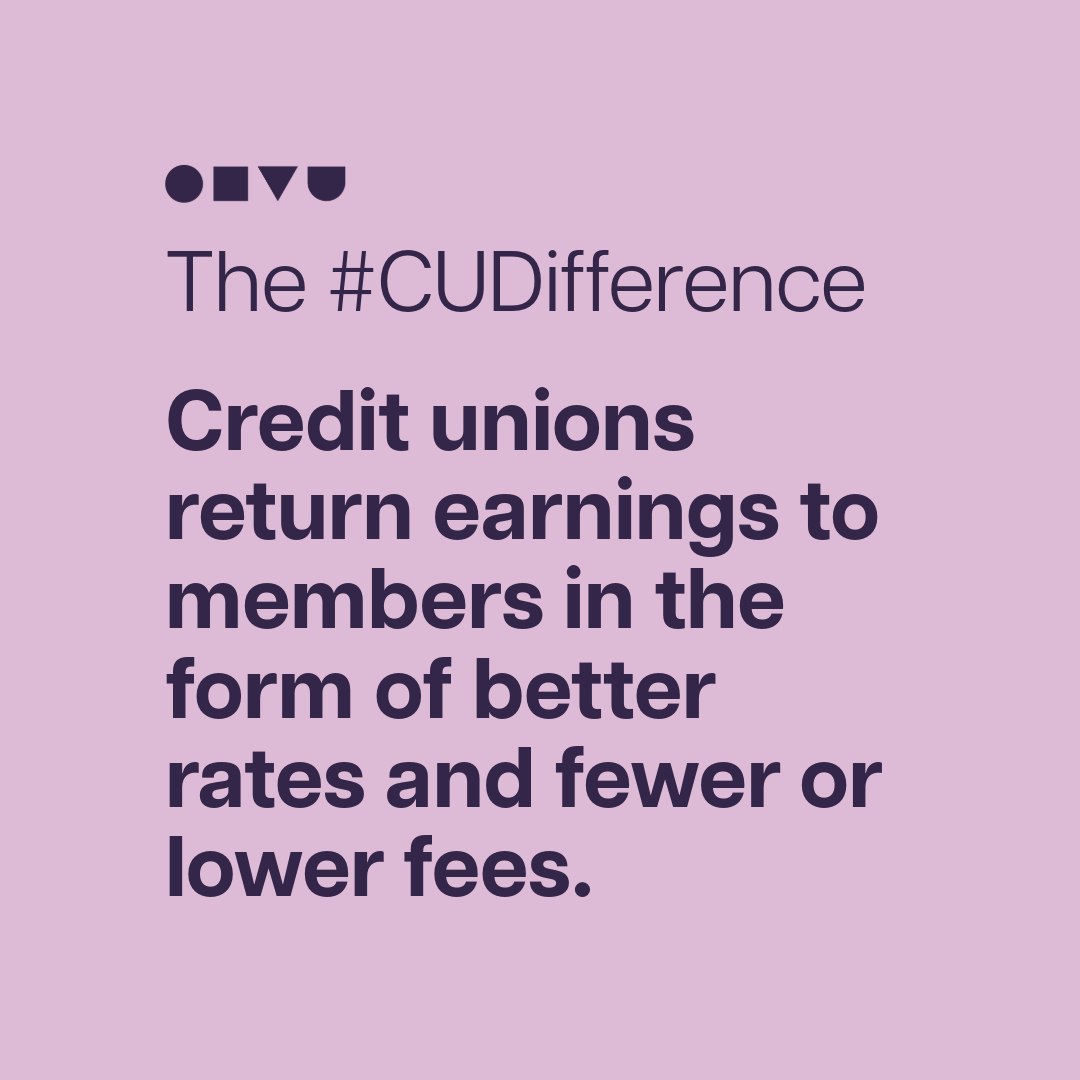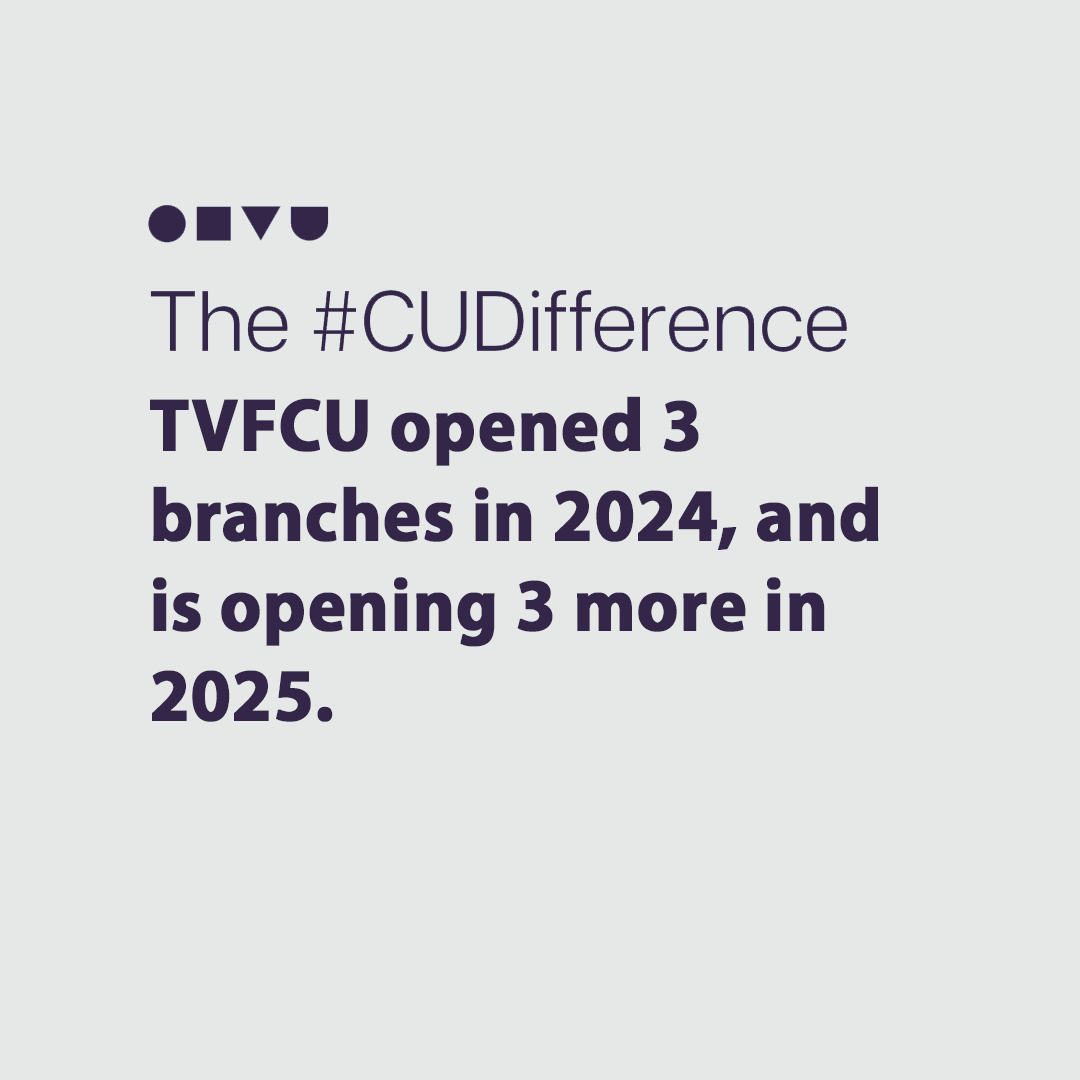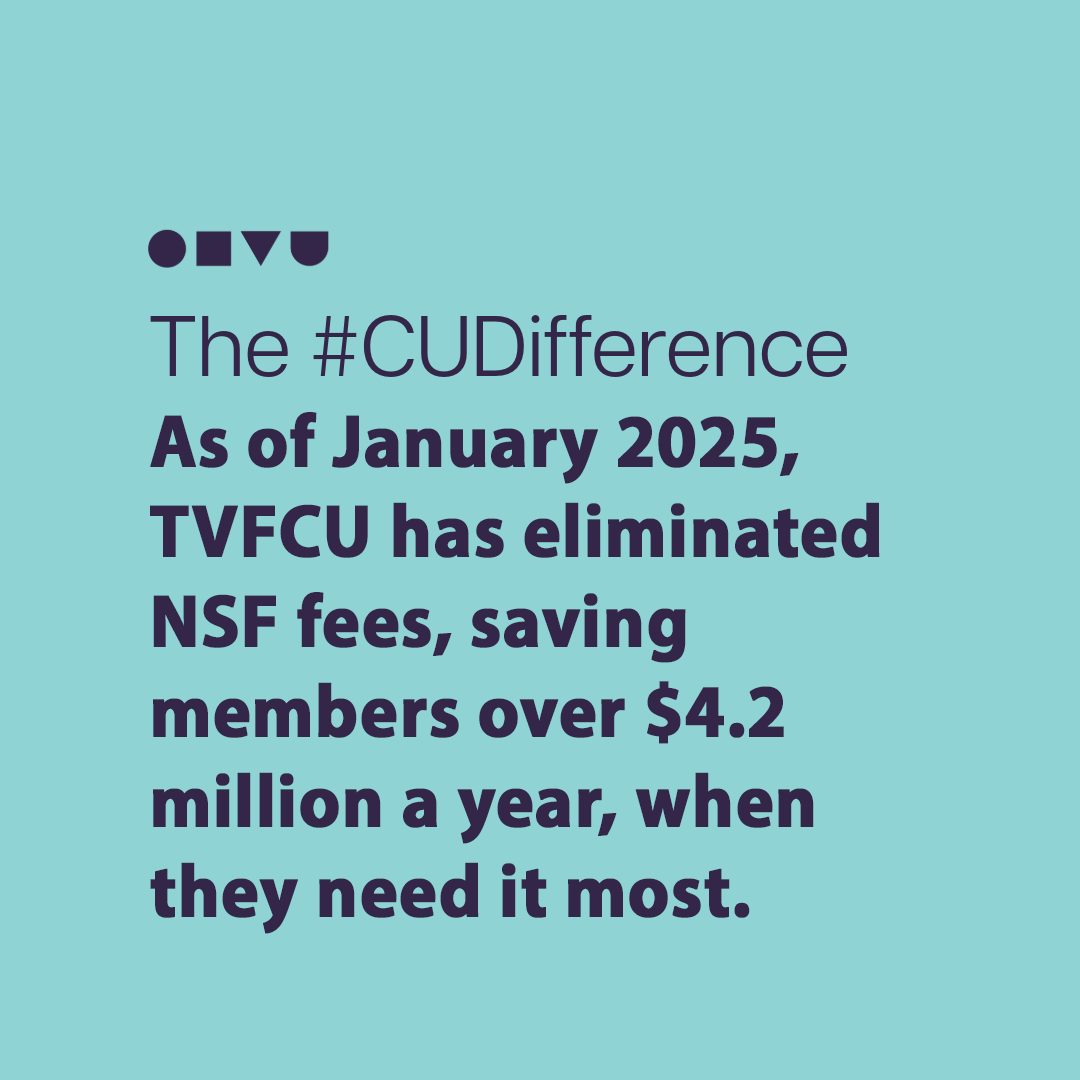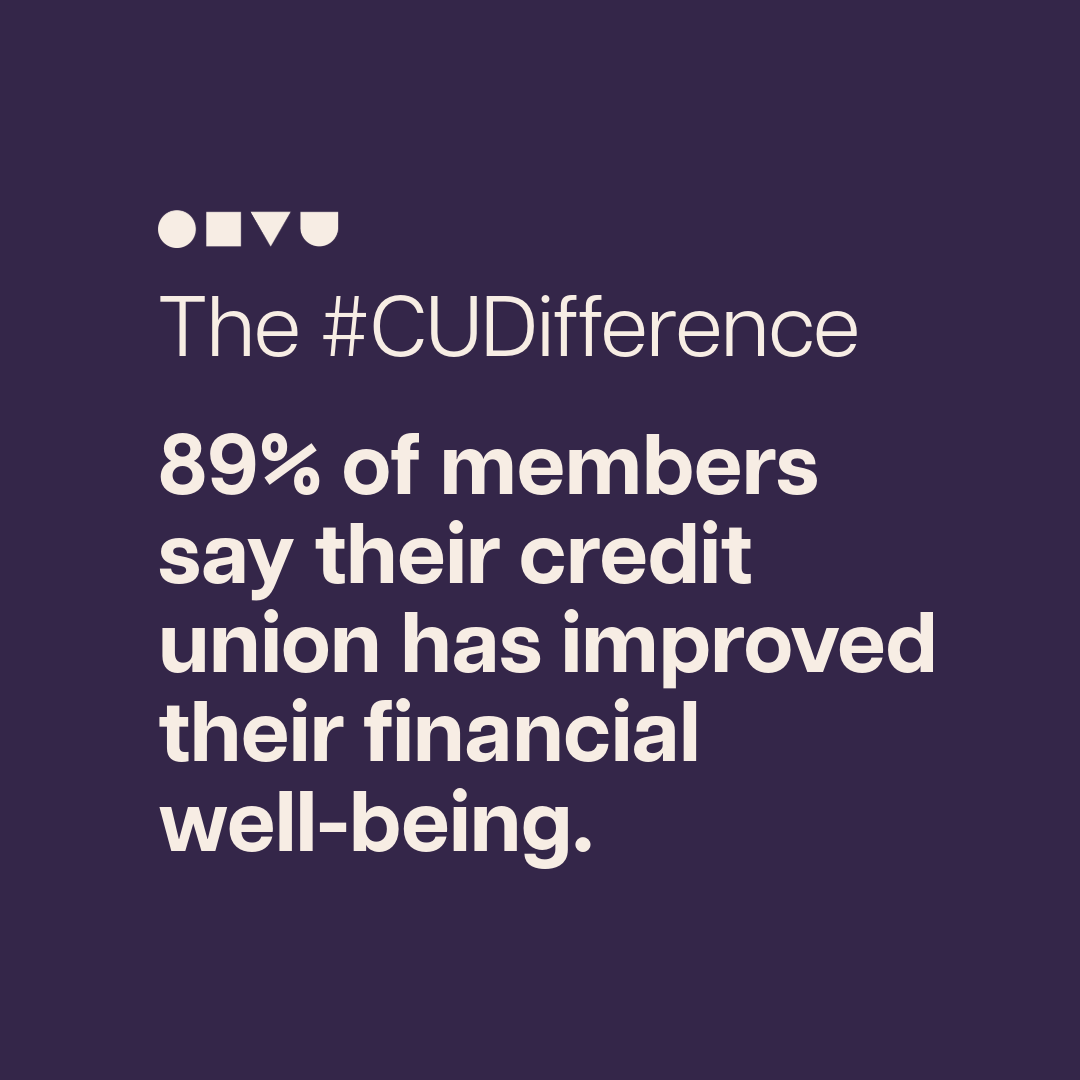The Credit Union Difference
March 21, 2025
Credit unions by the numbers
- 1.2 million jobs
- 4,617 credit unions
- $35+ billion total consumer financial benefits
- $297 billion total economic impact.

Credit unions help those left behind by other financial institutions
When it comes to banking deserts and underserved communities, credit
unions are committed to providing affordable financial services to consumers and small businesses. As 56 million Americans are considered financially vulnerable, including nearly half of unbanked households, credit unions are ready to reach more people, where and when they need it. The industry’s track record proves it:
- Credit Unions opened a net of 950 branches from 2020 - 2023
- Banks closed a net of over 8,600 branches from 2020 - 2023

Helping people achieve their financial dreams
Credit unions provide pathways to financial stability, including financial counseling, credit building, and opportunities to obtain affordable loans.
- Credit unions offer more affordable credit solutions to Americans
than the largest issuers, with better rates and lower annual fees on average. - Consumers who finance auto purchases at credit unions save as much as $11,000 over the life of a typical 72-month auto loan.
SOURCE: Equifax Analytic Dataset and America’s Credit Unions.
Based on first-half 2024 auto loan originations at credit unions, banks and auto finance companies. For example: TVFCU members who got their auto loan with TVFCU in December of 2024 saved a total of $3.1 million each year thanks to TVFCU's lower rates. - Deep subprime auto borrowers financing at a credit union save more than $10,000 during the typical 72-month auto loan (CFPB Consumer Credit Card Market Report)
- Mortgage borrowers who finance at credit unions save as much as $35,000 over the life of a typical 30-year mortgage (Mid-year 2023 Equifax data analysis). For example: TVFCU members saved a total of $668,000 on appraisal fees by financing their mortgage with TVFCU.
- 79% of credit unions offer secured credit card programs to help members build credit. TVFCU offers secured credit cards.
- 89% of members say their credit union has improved their financial well-being. TVFCU has eliminated NSF fees, helping members' finances at a time when they need it most.

What is a credit union?
Credit unions are not-for-profit financial cooperatives that are owned and operated by the people they serve for the people they serve. While credit unions provide many similar financial products and services to banks, this “people helping people” structure and focus sets credit unions of all asset sizes apart from other financial institutions.

Credit Unions |
Banks |
|
Structure: Not-for-profit cooperatives owned by the people who use them. |
For-profit corporations owned by shareholders, who don't have to be customers. |
|
Earnings: Returned to members in the form of better rates, fewer/lower fees and services like free ATMs |
Returned to shareholders in the form of dividends |
|
Service limitations: Credit unions have restrictions on who they can serve, due to their field of membership requirements. |
Banks do not have restrictions on who they can serve. |
|
Governance:
|
|
|
Taxes: Pay property, sales, and payroll taxes; Credit unions don't pay the federal income tax on profits - because profits are returned to members. |
Pay property, sales, and payroll taxes; Not exempt from federal income tax on profits - because shareholders retain profits. NOTE: Subchapter S banks do not pay federal income tax |
Additional Resources
- The credit union difference:
- Tell your elected representatives: Don't Tax My Credit Union
-
- Myth vs. Fact - the #CUDifference
